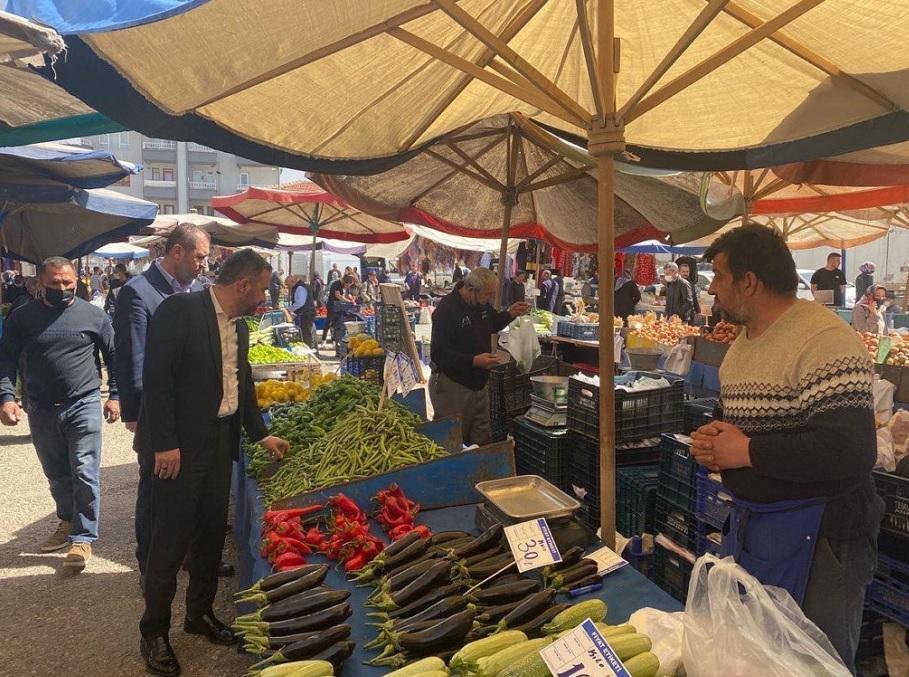Food prices soar to record levels on Ukraine war disruptions
GENEVA

World food prices hit an all-time high in March as Russia’s invasion of breadbasket Ukraine has disrupted wheat and coarse grain exports, the United Nation’s Food and Agriculture Organization said on April 8.
The FAO’s food price index surged by 12.6 percent between February and March, “making a giant leap to a new highest level since its inception in 1990,” said the FAO.
Its Food Price Index, which tracks monthly changes in international prices for a basket of commodities, averaged 159.3 points last month, up 12.6 percent from February.
FAO said the war in Ukraine was largely responsible for the 17.1 percent rise in the price of grains, including wheat and others like oats, barley and corn. Together, Russia and Ukraine account for around 30 percent and 20 percent of global wheat and corn exports, respectively.
The biggest price increases were for vegetable oils: that price index rose 23.2 percent, driven by higher quotations for sunflower seed oil that is used for cooking. Ukraine is the world’s leading exporter of sunflower oil, and Russia is number-two.
“There is, of course, a massive supply disruption, and that massive supply disruption from the Black Sea region has fueled prices for vegetable oil,” Josef Schmidhuber, deputy director of FAO’s markets and trade division, told reporters in Geneva.
He said he could not calculate how much the war was to blame for the record food prices, noting that poor weather conditions in the United States and China also were blamed for crop concerns. But he said “logistical factors” were playing a big role.
“Essentially, there are no exports through the Black Sea, and exports through the Baltics is practically also coming to an end,” he said.
Soaring food prices and disruption to supplies coming from Russia and Ukraine have threatened food shortages in countries in the Middle East, Africa and parts of Asia where many people already were not getting enough to eat.
Those nations rely on affordable supplies of wheat and other grains from the Black Sea region to feed millions of people who subsist on subsidized bread and bargain noodles, and they now face the possibility of further political instability.
Other large grain producers like the United States, Canada, France, Australia and Argentina are being closely watched to see if they can quickly ramp up production to fill in the gaps, but farmers face issues like climbing fuel and fertilizer costs exacerbated by the war, drought and supply chain disruptions.
Farmers are also worried that they would not be able to access fertilizers produced in the Black Sea region. Russia is a leading global exporter.
The FAO vegetable oil price index reached a new all-time high in March by increasing 46.9 points from February and 89.3 points from March 2021 to 248.6.
“The sharp rise of the index was driven by higher sunflower, palm, soy and rapeseed oil prices. International sunflower seed oil quotations increased substantially in March, fueled by reduced export supplies amid the ongoing conflict in the Black Sea region,” the FAO said.
The FAO sugar price index averaged 117.9 points in March, rising 7.4 points or 6.7 percent from February. It was also up by 21.7 points from March 2021.
The increase in sugar stemmed from the sharp increase in international crude oil prices that raised possibilities of a greater use of sugarcane for ethanol production.
The FAO meat price index went up 5.5 points on a monthly and 19.2 points on a yearly basis in March to 120.
“The FAO Dairy Price Index averaged 145.2 points in March, up 3.7 points from February, marking the seventh consecutive monthly increase and lifting the index 27.7 points (23.6 percent) above its value a year ago,” it added.
















